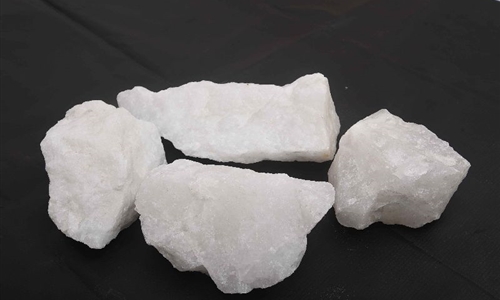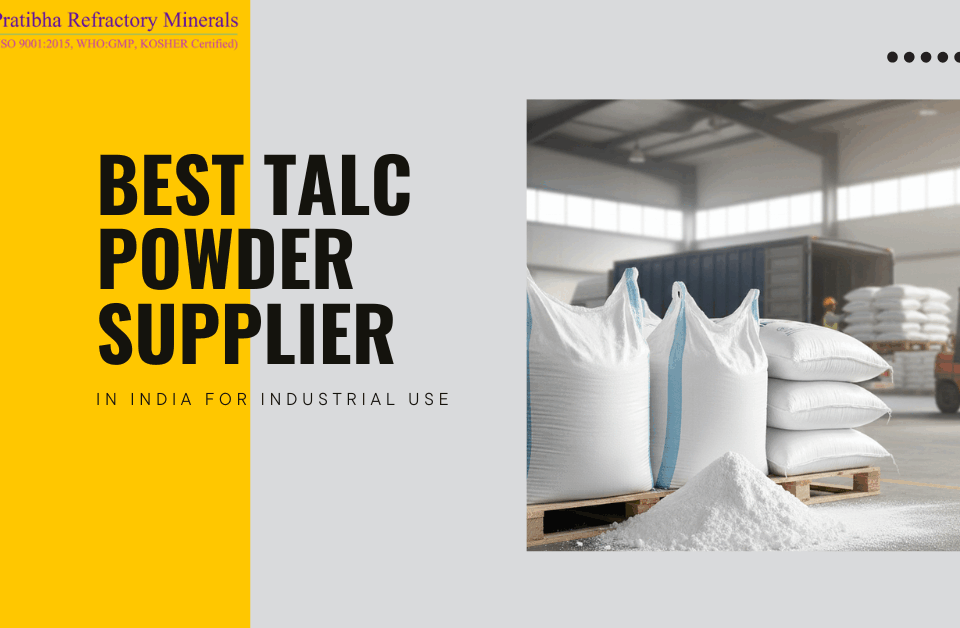- Call for Sales Enquiries

- +91-9413034047
- +91-294-2413244
- info@pratibharefractory.com
Are quartz lumps resistant to heat and chemicals?

How is quartz sand different from beach sand?
November 14, 2023
Can silica sand be used in aquariums?
November 27, 2023Are quartz lumps resistant to heat and chemicals?

Quartz lumps, those rugged and raw chunks of quartz mineral, are known for their remarkable qualities and versatility. Among the many attributes that make quartz a sought-after mineral, its resistance to heat and chemicals stands out as a key feature. In this blog post, we'll explore the world of quartz lumps, exploring their exceptional ability to withstand high temperatures and resist the corrosive effects of various chemicals.
What Makes Quartz Lumps So Resistant?
Quartz, in its natural form, is primarily composed of silicon and oxygen atoms arranged in a crystalline structure. This atomic arrangement gives quartz its exceptional physical and chemical properties. When it comes to heat and chemical resistance, two key factors come into play:
High Melting Point: Quartz has a remarkably high melting point of approximately 1,710 degrees Celsius (3,130 degrees Fahrenheit). This means that it can withstand extremely high temperatures without undergoing significant structural changes or melting. This property makes quartz an ideal choice for applications where exposure to heat is common.
Quartz is chemically inert, which means it does not readily react with most chemicals. This inertness is due to its tightly bonded silicon-oxygen lattice, which makes it highly resistant to corrosion or chemical breakdown, even when exposed to aggressive substances.
Heat Resistance: Quartz Lumps in High-Temperature Environments
Quartz lumps are often chosen for their exceptional heat resistance, which makes them invaluable in various industries and applications:
1. Glass Manufacturing One of the most prominent uses of quartz lumps that being a reputed Supplier of Quartz Lumps, manufacturers demand from us is in the production of glass. Glassmakers rely on the high heat resistance of quartz to help maintain the integrity of their furnaces and crucibles, even when subjected to the intense temperatures required for melting glass.
2. Semiconductor Manufacturing: The electronics industry heavily relies on quartz in the production of silicon wafers and integrated circuits. Quartz's ability to endure the high temperatures involved in semiconductor fabrication processes is crucial for ensuring the quality and precision of these electronic components.
Quartz lumps:Quartz lumps are used as a refractory material in foundries and metallurgical operations. Their ability to withstand extreme heat conditions, such as those encountered in metal casting and smelting processes, is vital for maintaining efficiency and product quality.
4. 4. Laboratory and Scientific Instruments: Quartz glassware, made from high-purity quartz, is widely used in laboratories due to its transparency and resistance to thermal shock. This makes it suitable for experiments involving extreme temperatures.
Chemical Resistance: Quartz Lumps in Harsh Chemical Environments
Quartz lumps' chemical inertness makes them an excellent choice for applications where exposure to aggressive chemicals is a concern:
1. Chemical Processing One of the most prominent uses of quartz lumps that being a reputed Supplier of Quartz Lumps, manufacturers demand from us is in the production of glass. Glassmakers rely on the high heat resistance of quartz to help maintain the integrity of their furnaces and crucibles, even when subjected to the intense temperatures required for melting glass.
2. Acid Storage: The electronics industry heavily relies on quartz in the production of silicon wafers and integrated circuits. Quartz's ability to endure the high temperatures involved in semiconductor fabrication processes is crucial for ensuring the quality and precision of these electronic components.
3. Water Treatment:Quartz lumps are used as a refractory material in foundries and metallurgical operations. Their ability to withstand extreme heat conditions, such as those encountered in metal casting and smelting processes, is vital for maintaining efficiency and product quality.
4. Laboratory Applications: Quartz glassware, made from high-purity quartz, is widely used in laboratories due to its transparency and resistance to thermal shock. This makes it suitable for experiments involving extreme temperatures.
In Conclusion
Quartz lumps, with their extraordinary heat and chemical resistance, play a vital role in numerous industries and applications. Their ability to endure high temperatures and resist corrosive substances makes them indispensable in glass manufacturing, electronics, metallurgy, and chemical processing. As you explore the world of quartz lumps, remember that their performance is influenced by factors such as purity, temperature management, and maintenance. By understanding and harnessing the remarkable properties of quartz, Pratibha Refractory Minerals can ensure that you can continue to benefit from this versatile mineral in a wide range of fields.


